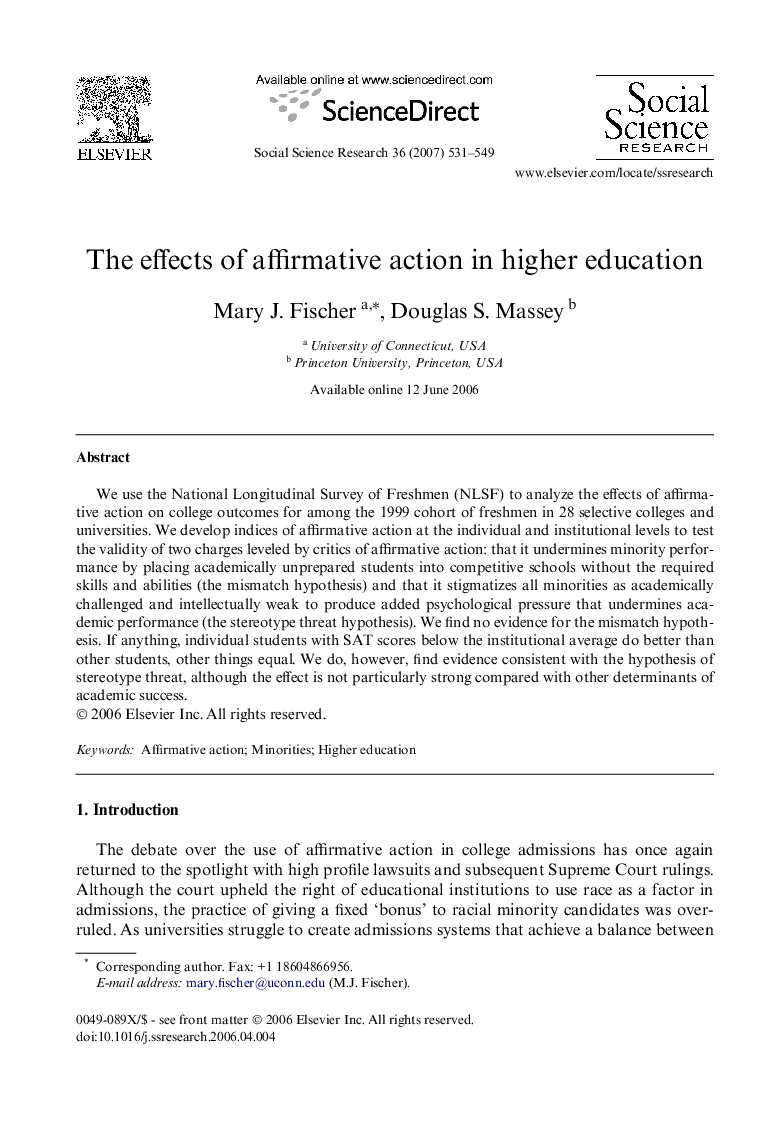| Article ID | Journal | Published Year | Pages | File Type |
|---|---|---|---|---|
| 956345 | Social Science Research | 2007 | 19 Pages |
We use the National Longitudinal Survey of Freshmen (NLSF) to analyze the effects of affirmative action on college outcomes for among the 1999 cohort of freshmen in 28 selective colleges and universities. We develop indices of affirmative action at the individual and institutional levels to test the validity of two charges leveled by critics of affirmative action: that it undermines minority performance by placing academically unprepared students into competitive schools without the required skills and abilities (the mismatch hypothesis) and that it stigmatizes all minorities as academically challenged and intellectually weak to produce added psychological pressure that undermines academic performance (the stereotype threat hypothesis). We find no evidence for the mismatch hypothesis. If anything, individual students with SAT scores below the institutional average do better than other students, other things equal. We do, however, find evidence consistent with the hypothesis of stereotype threat, although the effect is not particularly strong compared with other determinants of academic success.
